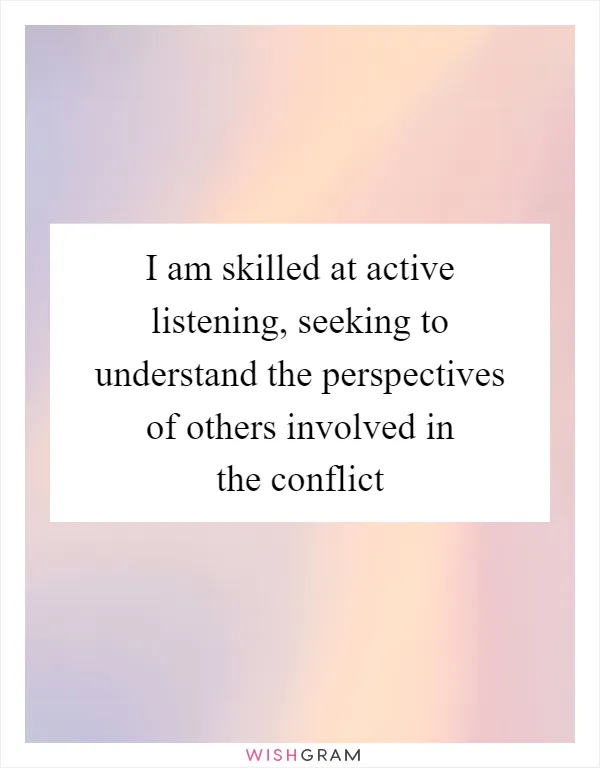I am skilled at active listening, seeking to understand the perspectives of others involved in the conflict
The affirmation "I am skilled at active listening, seeking to understand the perspectives of others involved in the conflict" can help you improve your communication skills and resolve conflicts more effectively. Active listening is a crucial skill that involves paying attention to what the other person is saying, asking questions, and reflecting back what you have heard to ensure that you have understood their perspective correctly. By doing so, you can build trust, empathy, and respect, which are essential for resolving conflicts and building positive relationships.
Active listening requires you to be fully present in the moment, without distractions or preconceptions. You need to focus on the speaker's words, tone, and body language, and avoid interrupting or judging them. Instead, you should ask open-ended questions that encourage them to share more about their thoughts, feelings, and needs. You should also use reflective listening techniques, such as paraphrasing, summarizing, and clarifying, to show that you are listening and to check your understanding.
Seeking to understand the perspectives of others involved in the conflict is another important aspect of effective communication. It means that you are willing to put yourself in their shoes, to see the situation from their point of view, and to acknowledge their feelings and needs. This does not mean that you have to agree with them or give up your own position, but it does mean that you are open to finding common ground and exploring possible solutions that meet everyone's needs.
To become skilled at active listening and seeking to understand the perspectives of others involved in the conflict, you need to practice regularly and be willing to learn from your mistakes. You can start by paying attention to your own communication habits and identifying areas where you could improve. For example, you may tend to interrupt or talk over others, or you may assume that you know what they are thinking or feeling without asking them. By becoming aware of these habits, you can start to change them and develop new habits that support active listening and empathy.
You can also seek feedback from others, such as friends, family members, or colleagues, who can give you honest and constructive feedback on your communication skills. You can ask them to observe your interactions with others and to provide specific examples of what you did well and what you could improve. This feedback can help you identify your strengths and weaknesses and develop a plan for improvement.
